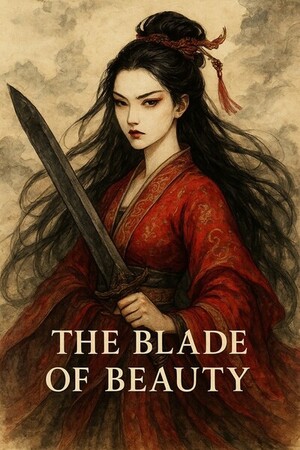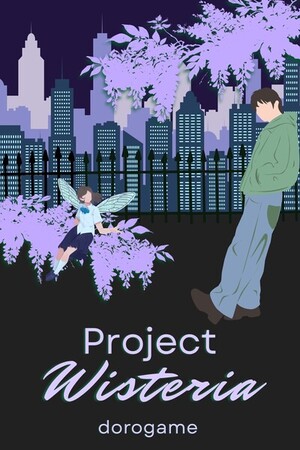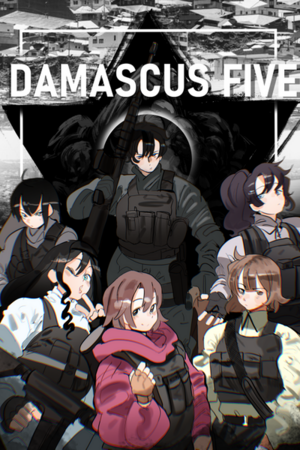Chapter 1:
Su Qi
I, a Hermaphrodite, Live by Taking Lives
My name is Su Qi, a person born as a hermaphrodite, commonly called “neither man nor woman.”
I live on the land of Yichuan, a continent where humans, ghosts, gods, and immortals coexist. My father was Su Zheng, the great general of the Southern Chuan Kingdom. When he discovered my abnormality, he locked me in a small hut in the backyard. That confinement lasted for a full eight years, until he had another normal child, and only then did he bring me to the back mountain, intending to kill me.
A spear pierced through my heart, yet I did not die. I was saved by an immortal—he became my master, Tu Xin.
Tu Xin was an immortal, a wandering immortal, without any official position.
In this world, most immortals pledged loyalty to the rulers of each kingdom. While continuing their cultivation, they accumulated merits in the mortal realm, all in the hope that one day they could ascend beyond the ninety-nine heavens and become gods.
But Tu Xin was different. He hid himself in a small mountain, spending his days only in dazing and sleeping.
Tu Xin took me as his disciple. I guessed he was simply too bored and needed someone to wash clothes, cook meals, plow fields, and grow crops for him.
I lived by my master’s side for ten full years, from the age of eight to eighteen. My master was not completely idle—he would occasionally teach me a few minor immortal arts. For example, the Bosuo Art.
Master said, all things in the world are constructed by cause and effect. If one can see clearly the “cause,” then one can see through all things. The Bosuo Art was also called the “Art of Cause and Effect.” Those who mastered it could achieve great merit and establish accomplishments.
To make my practice easier, my master drove me away, letting me fend for myself.
I felt helpless. I did not want to build achievements, nor did I want to ascend to the heavens. I only wished to live peacefully in this world. Life comes only once—was it not better to live free and unrestrained?
Master said, “No.”
So I descended the mountain. At a small riverside, gnawing on a baked cake, just as I was about to drink some water, I suddenly heard the sound of fighting from afar. Several burly men wielding long blades were battling against a young man with a fan. The fan-wielding man was clearly not their match and was soon covered in blood.
Sensing danger, I was about to slip away quietly, but those men mistook me as the servant of the fan man and rushed at me as well.
I quickly explained: “I don’t know him! I was only passing by!”
But the fan man suddenly threw a bundle to me and shouted: “Dongxue, take this and run! Do not let them catch you!”
I nearly cried: “…I really don’t know you.”
But it was useless to say more. They immediately attacked me. I had no choice but to run while throwing out the baked cakes from the bundle, hurling them at the pursuers. Running and throwing, I cursed my master in my heart—why had he taught me only those “serve in high office” immortal arts, not a single one useful for my current plight?
When I had thrown out the last baked cake and saw the blade about to fall on my head, I suddenly heard a snapping sound in the air. Looking up, I saw the burly man who was about to cut me down had frozen in place, like struck by acupoint sealing. Closer inspection showed his throat pierced by a thin needle, with a small stream of blood spurting out.
Hidden weapons.
The other two men also fell to the ground in the same way.
The one who had launched the hidden weapons was that very fan man who had used me as bait. The needles had shot out from within his fan.
After finishing this, he could no longer stand and collapsed to the ground, blood gushing—his injuries were severe.
My legs went weak as well, and I dropped heavily to the ground, hurriedly picking up the baked cakes I had thrown. Just as I was about to leave, the fan man suddenly said: “I just saved you. Will you not repay the favor?”
I said: “You clearly had such deadly hidden weapons. Why didn’t you use them earlier?”
“…The mechanism was stuck just now. So I used you to distract them.”
“Oh.” I turned to leave.
“If you save me, I will give you money.”
“Deal.”
The man with the fan called himself Gongsun Bai and said he was an envoy from the Northern Kingdom. He had been ambushed on his way to Southern Chuan.
So we were fated to travel together. Though his wounds were deep, his constitution was as strong as an ox’s; within three or five days he had largely recovered. The thought that he had used me as a human shield filled me with hot anger. I hinted, subtly, for the reward he owed me, but he only grinned and said, “No hurry, no hurry.”
As my purse grew lighter and lighter, I near burst with the urge to thrash him. He spread his hands and, with shameless coolness, said, “Then come back with me and fetch the money.”
So I had no choice but to follow him westward, until we came before a great peak called Mount Wu.
The mountain rose a thousand zhang, its body black as ink; even the river that ran through it glowed a gloomy darkness. Old peasants on the bank panned the sand for ore, and from time to time glittering stones were revealed.
I inquired, and an old farmer said, “This is Mount Wu. Some call it the Sword-Forging Manor.”
I was astonished. “An entire mountain, and it is a single manor?”
The farmer laughed loudly. “More than that — everyone on this mountain, myself included, are servants of the Sword-Forging Manor.”
After we left the farmer, Gongsun Bai and I walked and talked, and I learned two pieces of gossip.
First, the Sword-Forging Manor made swords above all else; every swordsman in the land coveted a blade from its forge. Over the years the Manor grew rich as a nation, so men mockingly called it a “state within a state.” Its heirs, however, became arrogant and profligate.
Second, the current head, Zhao Jin, was the worst of these prodigals. In only fourteen years he had squandered half the Manor’s fortune. Fourteen years past, he had also caused a scandal that stirred the realm.
“What scandal?” I asked.
“Do you know the First Blade under Heaven and the First Beauty under Heaven?” Gongsun Bai asked in return.
I shook my head. In these times everyone claimed some ‘first under heaven’ like cheap goods at market.
Gongsun Bai sighed. “Fourteen years ago the Manor poured all its soul into forging a blade called Duming, ‘Poisonous Nether.’ They say it reached the utmost perfection: it could cut iron like mud, split stars and moon, even predict fortunes and choose the world’s hegemon. That blade was meant to be presented to the newborn crown prince of Western Han, but Zhao Jin secretly took it and exchanged it for another person.”
“For whom?”
“For a courtesan.”
I thought I had misheard; Gongsun Bai repeated, “Indeed, a courtesan.”
“Heavens!” I slapped my chest. “A wastrel unmatched in history!”
“Not so,” Gongsun Bai opened his fan and fanned himself leisurely. “From another angle, he did not lose — after all, he traded for the greatest beauty of the age.”
Despite having an old farmer’s directions, we lost our way again, winding into a luxuriant forest. I grew anxious, for I badly needed a hot bath.
At sunset the sky was a pale wash of color. A woman in coarse hemp clothing approached, a hoe slung over her shoulder.
From her dress I quickly noted three truths:
She was a local villager;
She was a woman of peerless beauty;
She was the mother of such peerless beauty.
In short: a roughly dressed middle-aged beauty, surely over thirty-five. Sun and rain had roughened her skin and etched small lines upon her face, yet they did not diminish her loveliness.
“Who do you seek?” she asked.
Her beauty stunned me; I did not answer until she asked again and I realized we were lost and wished to find our way down the mountain.
She eyed me from head to foot, and with sudden chill said, “Why does a man near death go wandering about? You had better find a good plot nearby and prepare for your affairs.”
Her surname was Liu; we called her Aunt Liu. Her home was a common mountain cottage: two thatched huts, a small yard, a patch of vegetables, and a few fowl.
Her words shocked me. Indeed I did not have long to live — born neither male nor female, I was an anomaly in a world strict with yin and yang. Only by my master’s arts had my life been prolonged. He had sent me down to seek those whose fate was linked to mine so I might divide life from them.
In short, they would lend me a portion of their life. This secret I had told no one — not even Gongsun Bai, who had traveled day and night with me. How had this plain woman seen through it?
I did not ask. Aunt Liu did not explain, but said instead that night was falling and it would be difficult to find the way; her home was near and we could lodge there.
Entering Aunt Liu’s home, we found two children of eleven or twelve, a boy and a girl, borne strikingly alike — surely fraternal twins. With such a mother, the children naturally had fine looks. The boy was erect and handsome; the girl graceful and pretty — one could just see the radiance they would bear when grown.
Aunt Liu sent them out and bade us sit. Barely had we settled when she said, “Three taels of silver per person for a meal; two more for overnight lodging, with a bath.”
I sprang up. “That’s robbery! Why not go rob the market if you price it so?”
Such a price! Though I had been off the plains for years, I knew market rates well enough — this was absurd.
Aunt Liu remained expressionless. “If you object, seek another house.”
I grabbed Gongsun Bai to leave, but he caught me. “I will pay. I will pay,” and before my eyes he drew a purse and produced a bright silver coin. “See, is it enough?”
Aunt Liu nodded. “Enough.”
I pointed trembling at Gongsun Bai. “You — you… you have money! Why not give it to me earlier?”
Gongsun Bai smiled without a word.
Thus we stayed. Aunt Liu took the silver and sent the twins to fetch wine and food.
Curiosity overcame me and I asked, “Why did you say I was —”
“—a dying man?” she finished for me, pouring me a cup of water with a smile. “Young Master Su, do not take offense. I said it because I, too, am near death. Only those who face death see the dying; none knows such sight better than I.”
The air grew heavy.
I looked into her dark, ink-black eyes and felt an unease. A man lives by a breath — that breath is life. Generally cultivators could, by gauging a person’s qi, estimate a span of years. I, having practiced with my master, could do the same to some degree. But Aunt Liu was a country woman — how could she see it?
Seeing my puzzlement, she explained: “When I was small, a travelling Taoist passed by our door and told me he must take me to cultivate, that only thus could the bitterness of my life be removed. Had I not remained, life would have been like driftwood: miserable and at the mercy of others. I longed to go, but my father refused.”
“He wanted a child to mind the house, to be his scapegoat.”
So it was — a kind of fated root, an ‘immortal affinity’. One who would ascend needs not only effort but innate bones of destiny. Aunt Liu had such a fate, yet it had been squandered.
“When you approached,” she said, “I saw a black qi about you. Those who bear such a black qi die soon. That is why I spoke.”
“Oh? And what does Aunt Liu see in me?” Gongsun Bai asked with a faint smile.
She turned to him, cool and detached. “For you, Master Gongsun, I see gold and red. It appears your hands are no strangers to blood.”
Gongsun Bai smiled thinly, conceding by that.
Before long the children returned with meat and wine, and Gongsun Bai and I ate. The house was dim save for a single oil lamp; Aunt Liu mended garments by its light while the twins counted stars outside. Before long, a man’s voice called from the yard.
“Wife! Wife! I am home!”
Aunt Liu started, put down her needle, and went out to meet him. A plain man entered: a square headscarf tied about his brow, short shirt damp with sweat, carrying the twins under his arm — the pair crying “Papa! Papa!” all the while.
“Off you go — your father is weary,” he said.
“Not tired,” he laughed, hugging them close, and then noticed us. “Guests?”
Aunt Liu brought a basin. “They are travelers, lost in the mountain; they ask shelter for a night.”
The man bowed with a smile. “The mountain is hard to find one’s way. Tomorrow I will guide these guests out.”
We nodded with thanks.
Liu’s husband was indeed ordinary: short nose, coarse face, neither tall nor strong — ill-matched to a wife of such surpassing grace. Were it not for fiction, one would think that with Aunt Liu’s looks she could be queen in the capital; yet she had chosen a simple mountain life. There must be some virtue in the man that drew her.
At supper Aunt Liu brought wine, meat, and a pot of wild-vegetable porridge. The four ate warmly. Liu spoke without pause of his day’s labors and earnings, and handed the day’s take into Aunt Liu’s hands.
She took it with a smiling face and poured him another cup.
Liu grew rosy with drink and produced a simple silver hairpin. “Wang the pedlar brought this from market. Do you like it?”
Aunt Liu bent to let him fix it in her hair. Plain though the pin was, on her it seemed fit and added to her beauty. Her eyes flashed and her speech was bright; I could not help being captivated.
“My wife is beautiful,” Liu cried, turning to us. “Have you ever seen such a woman?”
Gongsun Bai and I both bowed. “Madam is peerless in this world.”
Aunt Liu patted Liu’s shoulder and chided him gently to keep modest. Then she said to us, “I will warm another pot of wine.”




Please sign in to leave a comment.